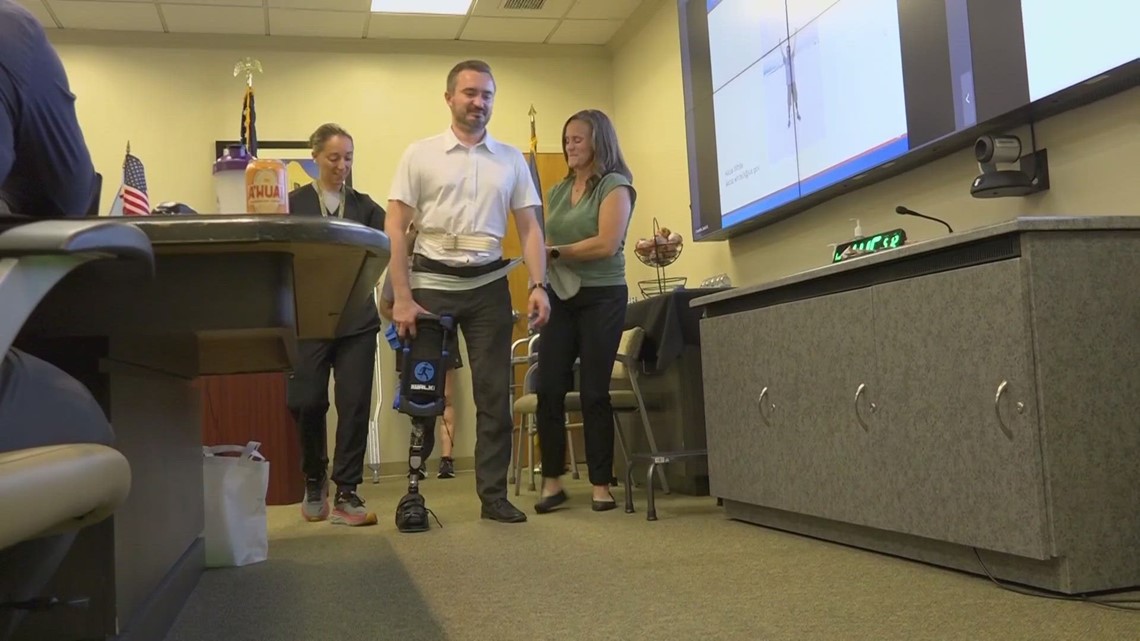Ukrainian doctors visit South Texas VA in San Antonio as war rages on
The stressed health care system in Ukraine is confronted with the challenge of assisting thousands of soldiers and civilians impacted by Russia’s invasion.
SAN ANTONIO — A delegation of Ukrainians spent the week in San Antonio learning from the South Texas Veterans Health Care System how to help rehabilitate those impacted by the war.
Physicians and government representatives from Ukraine’s Ministry of Health and Ministry of Veterans Affairs initially flew into Washington D.C. where they met with government officials, including the Ukrainian ambassador to the U.S.
The delegation was hosted by the San Antonio Council for International Visitors through the Open World program.
Leadership from the South Texas Veterans Health Care System provided a host of training related to different aspects of war trauma.
“This experience was very valuable and fruitful for us because we have a lot of complex traumas, SCI (spinal cord jury), TBI (traumatic brain injury) burns, blinded persons,” said Dr. Serhii Kolisnyk, associate professor of the Department of Physical and Rehabilitation Medicine at Vinnystia National Pirogov Medical University.
Russia’s invasion of Ukraine has led to extensive destruction of cities and countless lives lost. While financial aid continues to pour into the war-ravaged country, there are international efforts to share knowledge on enhancing medical treatment for those who’ve experienced physical and mental injuries.
Dr. Seth Chandler serves as chief of the South Texas Veterans Health Care System’s Physical Medicine Rehabilitation Service. He said doctors are in Ukraine are confronted with an ongoing challenge of treating 300 new amputees every day.
“Not only is it veterans that they’re having to take care of, but unfortunately a lot of their civilian population is also caught up in this horrible war,” Chandler said.
Much of the education revolved around experiences from American doctors over the past 20 years who helped veterans recovering from the conflicts in the Middle East.
“They want to see what we’ve been able to learn in terms of limp salvage surgeries, new technologies that we’ve been able to develop in terms of prosthetic limbs but also new medical treatments and probably dispel a lot of the longstanding myths about mental health,’ Chandler said.
Kolisnyk said the rehabilitation knowledge learned in the U.S. will prove life-changing when he returns home, especially as it relates to the unseen wounds of war.
“Our country is very big like in Texas so we have big population and every family, every child, every woman, every combat hand, has some signs of PTSD,” Kolisnyk said. “Together we will do more, together we will win.”
No Byline Policy
Editorial Guidelines
Corrections Policy
Source
